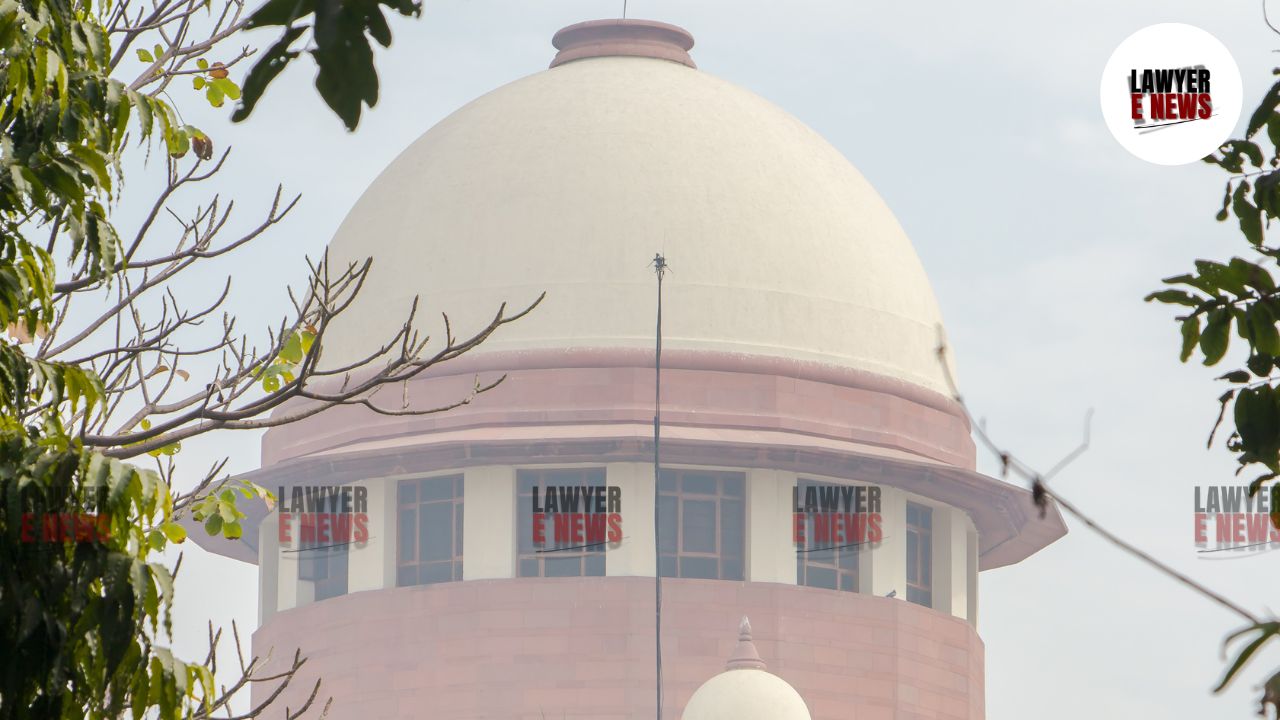-
by Admin
15 February 2026 5:35 AM



In a significant judgment dated November 28, 2024, the Supreme Court acquitted Suresh Chandra Tiwari and another appellant, reversing their conviction in a murder case based solely on circumstantial evidence. The Court emphasized that the prosecution failed to establish a chain of circumstances that pointed conclusively to the guilt of the accused. The decision, delivered by Justices J.B. Pardiwala and Manoj Misra, underscored the necessity of a robust evidentiary basis for convictions, particularly in cases reliant on circumstantial evidence.
The case involved the alleged murder of Suresh Upreti on February 2, 1997. His body was discovered near a shop owned by Mohan Singh, bearing injuries indicative of violent assault. The prosecution argued that the appellants killed Upreti due to enmity stemming from a 1996 panchayat election. Initially convicted under Section 302/34 IPC by the trial court, the appellants’ conviction was altered by the High Court to Section 304 Part I IPC, reducing their sentence to seven years’ imprisonment.
The Supreme Court meticulously examined the principles governing cases based on circumstantial evidence. It reaffirmed that the prosecution must establish a continuous chain of events, leaving no doubt of the accused's guilt. “It is a settled proposition of law,” the judgment read, “that in cases based on circumstantial evidence, each circumstance relied upon by the prosecution must be cogently and firmly established. The circumstances should form a chain so complete that there is no escape from the conclusion that the crime was committed by the accused.”
The Court found that the prosecution’s reliance on the last-seen theory was untenable. It stated, “The alleged last-seen evidence falls flat in the absence of proximity between the time and place the deceased was last seen with the accused and the recovery of the body.” The Court also dismissed the significance of the alleged motive, observing that prior enmity due to panchayat elections did not establish a clear link to the murder. “Motive, unless supported by strong corroborative evidence, cannot serve as a foundation for conviction.”
The Supreme Court criticized the lower courts for their handling of the evidence. It pointed out that the forensic reports failed to conclusively link the recovered bloodstained articles to the crime. Additionally, witness testimonies were inconsistent and insufficient to support a conviction. “Suspicion, however grave, cannot replace proof,” the Court remarked, reiterating that the judiciary must safeguard the principle of proof beyond a reasonable doubt.
The judgment also addressed the High Court's decision to modify the conviction. The High Court had held that the fatal injuries could have resulted from a single blow, reducing the offense to culpable homicide not amounting to murder. The Supreme Court disagreed, noting, “The approach of the High Court in altering the conviction without adequate reasoning compromises judicial scrutiny and fairness.”
Concluding that the prosecution failed to meet the requisite standard of proof, the Supreme Court acquitted the appellants, declaring, “The appellants are entitled to the benefit of doubt in the absence of conclusive and reliable evidence establishing their guilt.” It further stated that the case highlighted the critical role of careful judicial evaluation in ensuring that no innocent person is wrongfully convicted.
The decision serves as a reminder of the judiciary’s role in upholding the principles of justice and due process, particularly in criminal cases where circumstantial evidence forms the basis of the prosecution's case.
Date of Decision: 28/11/2024
